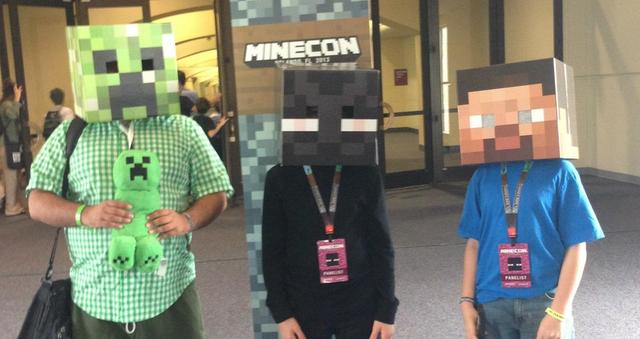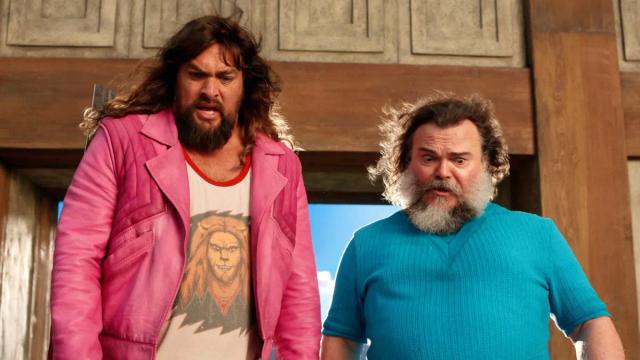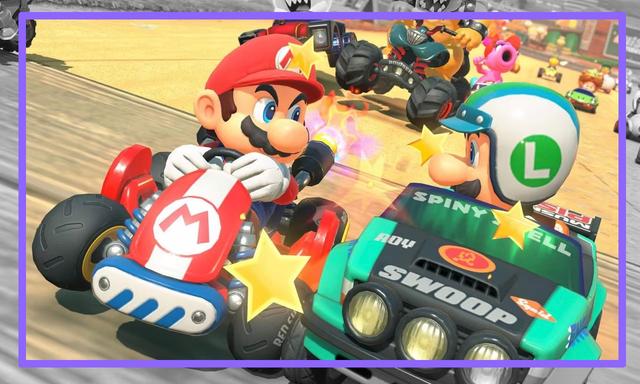If you click on a link and make a purchase we may receive a small commission. Read our editorial policy.
Skibidi Toilet reflects the state of warfare in the 21st century, if you're willing to look
Walk with me here, there's a lot worth unpacking about why Skibidi Toilet is popular among Gen Z and Gen Alpha

Popverse's top stories of the day
- Marvel's Kevin Feige talked to John Boyega about who he'd play in the MCU, but "there ain't no room for me," says the Star Wars star
- MEMBERS ONLY: Watch the Lord of the Rings movie reunion panel with Elijah Wood, Sean Astin, Dominic Monaghan, Billy Boyd, John Rhys-Davies, and Andy Serkis from Chicago's C2E2 2025
- Sorry, webheads: Tom Hardy says we weren't as close to that Spidey/Venom movie as was reported
If you have kids, or if you're around kids a lot, you may have heard the term 'Skibidi.' It's usually accompanied by an outburst of giggles whenever it's said. What does it mean? Well, a lot of things - it's context-dependent. When I walked out of a press screening for Joker: Folie à Deux last fall, a man who looked at least 20 years old said, "That movie was so skibidi." Folie, indeed.
The term originates from a video series on YouTube called Skibidi Toilet, produced by a creator named - stay with me here - DaFuq!? Boom! The name of Skibidi Toilet's creator works in part as a summary of the series itself, with its blend of surreal but unsettling images of heads bursting out of toilet bowls, to the large-scale warfare that takes place across the series. The series has grown a massive audience, particularly within Gen Z and Gen Alpha, and has frequently been described as "brain rot." I don't think I need to explain to you what "brain rot" means.
So what is a greying man who remembers 9/11 like me doing talking about Skibidi Toilet on this here internet? Well, like just about anything else in popular media, I think it's worth unpacking. And given how popular it is, it's clear that something about it, about those darn toilets, that engages with some aspect of Gen Z and Gen Alpha's life experiences thus far. In plain terms, I think waving Skibidi Toilet off as "brain rot" is intellectually boring and conservative at its core. Just ten years ago, Eric Andre was making surreal comedy sketches like Bird Up that has elements of what people would now call "brain rot." To dismiss Skibidi Toilet as "brain rot" not worth analyzing the themes of evidences a certain moralizing impulse - one that reacts to visual media that defies logic and other mainstream components with vague negativity. Viewing Skibidi Toilet this one-dimensionally discourages further thought into why things like it are proliferating right now. And personally, I like to at least try to get a sense of what's going on around me. So let's get into it.
Skibidi Toilet contributes to the influential art history legacy of Dadaism

There's a significant art history precedent for Skibidi Toilet. In 1917, French artist Marcel Duchamp shocked the world when he unveiled his sculpture, entitled 'Fountain.' 'Fountain' is an upside-down urinal, signed with the words 'R. Mutt' and the year of its creation. The piece set the art world ablaze, with many folks arguing about whether or not a found object like a urinal could be considered "art," and the sculpture found a lot of love among figures within the Dada movement. If you aren't familiar, Dada was a movement in the early part of the 20th century that rebelled against societal forces like order, logic, conformity, you name it, in order to embrace the surreal. For the Dadaists, the surreal was the real, as modern society introduced radical changes to life in Europe and North America.
Please bear in mind, Duchamp's 'Fountain' was created more than a hundred years ago, before rock n' roll and antiperspirant. But I guess toilets are still provocative even as we move further into the twenty-first century. Now, it's Skibidi Toilet's combination of toilets are warfare that really gets me thinking, because images of warfare come with their own loaded history of meaning, at least in America. The cataclysm of Skibidi Toilet's toilets and gunfire, of objects from domestic spaces paired with violence most American viewers have no way of conceptualizing, bears echoes of Martha Rosler's series, Bringing the War Home, which she made in response to the Vietnam War.
But beyond Rosler, there's something decidedly twenty-first century about Skibidi Toilet, particularly with the terms in which it expresses its surreal themes. War, within an American context, is associated with organization and "meaning," traditionally. It's an activity presided over by old men with fancy pins on their jackets, who are supposed to make strategic decisions. But Skibidi Toilet's singing, disembodied heads that burst out of toilets is in direct contradiction with this existing paradigm that we're conditioned to understand warfare within. Nothing makes sense about these heads in these toilets, and by extension, nothing makes sense about this war they're fighting in.
You don't have to look far to identify parallels between this element of Skibidi Toilet and our own world. My grandfather's generation fought the Nazis, and it isn't difficult to see 'why' World War II was fought. But by the time I rolled around, I watched the Invasion of Iraq unfold on television, utterly at a loss for why any of it was happening. I don't think I'm alone amongst other young people when I say that war doesn't make any sense anymore.
As ridiculous as it is, Skibidi Toilet embodies this 21st century conundrum of warfare without reason. The first-person perspective of the series's footage enhances this feeling of confusion we get from watching fighter jets with human heads blow each other up. To their credit, DaFuq!? Boom! chooses not to frame the violence of Skibidi Toilet from an objective point of view - a perspective that is commonly associated with order and logic within cinema history (think: the way NFL games are filmed for ESPN). The strangeness of the warfare in Skibidi Toilet is not lost on the characters in the series itself. There are times when the main character survives an explosion and looks over to one of their compatriots, a man with a security camera for a head, who looks directly at us, and then shrugs. Like the main character of Skibidi Toilet, we too are experiencing our lives, observing nonsensical violence all around us, and are trying to find meaning in all of it.
Part of the appeal of Skibidi Toilet for viewers is the “lore,” where they try to construct meaning from something that doesn’t exactly encourage it. This is a central throughline throughout all of human history - it's where we get myths and legends from. Granted, I don't think Skibidi Toilet is our next Ovid's Metamorphoses, but I think it engages with this innate quality that has defined us for thousands of years. In effect, Skibidi Toilet isn't "brain rot," and there isn't something "cooked" or even inherently special about Gen Z or Gen Alpha. They're having a typical human response to a typical human experience: uncertainty.
It just looks a bit uglier than what you're used to seeing.
Want to know what's coming up next in pop culture? Check out Popverse's guides to:
Follow Popverse for upcoming event coverage and news
Find out how we conduct our review by reading our review policy
Let Popverse be your tour guide through the wilderness of pop culture
Sign in and let us help you find your new favorite thing.
















Comments
Want to join the discussion? Please activate your account first.
Visit Reedpop ID if you need to resend the confirmation email.